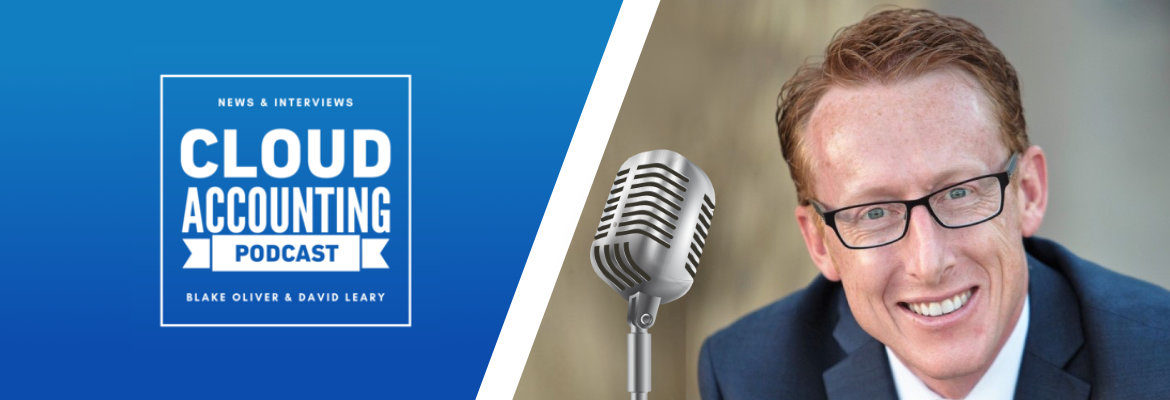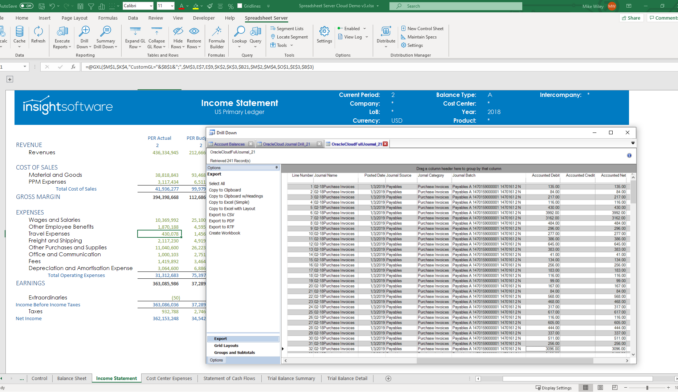Q&A Tuesday with David Leary: Helping Financial Professionals Weather Their Storms

David Leary is an accounting and bookkeeping evangelist for Melio Payments, has a top-rated accounting podcast, and helps companies solve their accounting and bookkeeping challenges. You can follow him on LinkedIn or find his Cloud Accounting podcast here.
You worked for Intuit for more than 21 years. Tell me a little bit about what you’re doing now and how you got to where you are.
I started out doing tech support for various iterations of Quickbooks, from the DOS software through the latest online version. After tech support, I advanced to quality assurance, development, marketing, and product management.
In the last five or six years I was with Intuit, I worked on building out the add-on apps for Quickbooks Online that are now available in the Intuit app store. In a way, that task was a three-headed beast: I had to get small business owners to use these apps, I had to convince developers to build the apps, and finally, I had to get accountants to adopt and use the apps.
When I left Intuit and started my own company, everything that had been in theory before suddenly became real; I was using the software to manage my real business and my real money. That was a huge eye-opener for me after all that time at Intuit.
What is an accounting and bookkeeping evangelist and why does the industry need one?
I view my role as having two halves. At one level, I want to get accountants and bookkeepers excited about using Melio Payments, the company for which I work; but on the other hand, internally, I have to get Melio and the team here excited about accountants and bookkeepers and solving the problems they have, because those problems are different than the problems small business owners have.
For instance, paying a bill may be a fairly simple process for a business owner. They get the bill, they may ignore the bill, and eventually they pay the bill. For an accountant, though, paying a bill can be a 10-to-15 step process that goes from verifying that the bill is real to checking that it reconciled through the bank account properly.
Software development companies need to become aware of those steps when they build software and try to sell it to accountants if they want to meet their needs.
How did you start doing a podcast and what has that experience been like?
My cohost Blake Oliver and I started the Cloud Accounting Podcast in November 2017, and it is now the top accounting and bookkeeping podcast in the world. Blake and I met at a conference about two years before the podcast got started and actually talked over a beer about doing one, but nothing came of it at that time.
Blake started doing a weekly webinar that he then sliced into a podcast, and I came on around episode four or five. The podcast summarizes the week’s accounting and bookkeeping news into a one-hour broadcast so that commuters can get all their accounting and bookkeeping news in an easily digestible and accessible way. We bring them what’s important instead of making them read 50 different blog posts.
We focused on three things: consistency in showing up and doing the podcast every week without fail, providing value by giving accountants and bookkeepers the news they need, and sound quality using quality equipment. It’s not a secret podcast formula; I think any business that focuses on consistency, value, and quality is likely to be successful.
How does collecting and accessing the right data help a business grow and thrive?
Whether the business is large enough to use ERP software or is a smaller business like the ones I’ve mostly dealt with since starting my own firm, the data ultimately has to be correct because people are making decisions from it. SaaS (software as a service) has become a game changer as far as collecting data faster so that it can be more useful in real time, as opposed to pre-SaaS when it took weeks or months for accountants to get data from a business, process it, and then give it back to the business owner.
To what extent can a company automate or outsource accounting before it becomes a detriment? Is there such a thing as too much automation?
Automation is a big topic right now in the industry. Many accountants and bookkeepers are finding that they spend a lot of their time now troubleshooting automation because some part of it broke and needs to be fixed.
On the other hand, automation really gives a big bang for the buck in the number of clients accountants and bookkeepers are able to take on at one time, which can make them much more profitable.
Between doing things by hand and automation, there’s documentation and standardization that needs to happen for automation to work. With those pieces in place, it becomes easier to onboard new team members, because there’s a uniform standard, and there’s a record of the standard that is documented.
How has the coronavirus outbreak impacted your various ventures?
The coronavirus has impacted everything across the board. Small businesses have been severely impacted by the shutdowns, and there are definite concerns about businesses going under. Accountants and bookkeepers have been bearing a lot of the weight of those problems as they handle the financials for these companies.
On top of all that, the government rolled out several stimulus packages and the Paycheck Protection Program, which added even more to their duties as clients looked to them to help understand the new regulations and assist with information-gathering and the application process.
All this means that the impact on accountants and bookkeepers has been massive; really, they are unsung heroes in the whole pandemic because no one really sees how much they are trying to do and how much is being thrown at them right now. A lot of them have been pretty much working nonstop to try to keep up with the rapid changes. Then there’s the mental stress of seeing what’s happening to these small businesses, watching them struggle and potentially go under because of the shutdowns.
On a positive note, I also do an accounting conference called AccountingSalon.com, which we turned into a virtual event on very short notice. It’s usually very small, maybe 45 attendees, but we just had 1,200 people because we decided to open it up to the world for free. Additionally, Melio Payments has seen an uptick in business because of the need to make cashless, virtual payments in the midst of the pandemic.
So everything that I do has been impacted: some in negative or concerning ways and some in positive ways, but still with challenges.
What advice can you give to others in the small business or accounting spheres about how to make adjustments during this difficult time?
For small businesses, I would say that you need to have an accountant or bookkeeper; it’s just necessary in the current environment.
For the accountants and bookkeepers out there, you need to take care of your mental health. It’s really easy to work nonstop for your clients, trying to help them, but you need to take some time for yourself, too.
If your company needs help in collecting data and looking at the bigger picture, download our whitepaper: 5 Things Not to Do When Choosing a Financial Reporting Tool.







